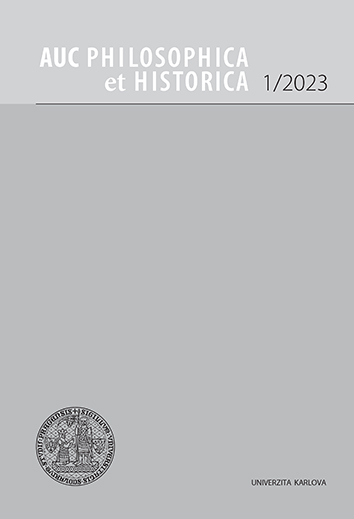AUC Philosophica et Historica (Acta Universitatis Carolinae Philosophica et Historica) is a multidisciplinary academic journal focused on the humanities with more than 50 years of tradition.
The journal is indexed in CEEOL, DOAJ, and EBSCO.
AUC PHILOSOPHICA ET HISTORICA, Vol 2009 No 1 (2009), 35–54
Silná Evropa? Ekonomická krize a ekologické závazky
Zdenka Sokolíčková, Gaudenz Assenza, Aliaksandr Martynau
DOI: https://doi.org/10.14712/24647055.2018.11
published online: 12. 01. 2018
abstract
Europe, currently integrating within the European Union, is facing interrelated crises in the spheres of politics, culture, economics and environment. How is the development in these areas connected and how to approach the issue from a cultural perspective? Our hypothesis is that the global economic crisis unraveling simultaneously with ecological degradation is caused by a false understanding of the concept of “power”. The attempts to create a strong, globally successful region are primarily based on the idea of competitiveness and economic growth. Academics, politicians, bureaucrats and journalists follow developmental trends in, for example, China, fearing that Europe loses its leading position in the world. However, in reality the slowing of economic growth brings hope for longer and better life of citizens compared with the rapidly developing but highly polluted countries. Green, slowly expanding economy is more flexible, viable and also stable than the one which is growing at a galloping pace. The traditional Western economic competitiveness (which is a struggle of rivaling economic forces) is incompatible with principles which Europe is currently promoting under the banner of ecological sustainability. The need to mitigate the consequences of the recession is met by tweaking the system, which in its core is at the very best neutral towards the environment, if not detrimental to it. As the EU builds its new vision on the environmental – friendly foundation and positions itself as a leading actor in green politics, the basic assumptions about the world remain ecologically unsustainable. If we take a closer look at the essence of power as conceived by the majority, it becomes clear that power is a synonym of growth and that small can be beautiful, but never strong. The causes of drastic economic and environmental changes are cultural assumptions, which need to be approached comprehensively. However, our society fails to do so, partial solutions adopted are insufficient and the need to work out a comprehensive strategy lingers. The concept of power in its traditional Western rationalist spirit becomes even more dangerous when its logic is accepted by other world regions striving to achieve the European standard of life. The current model of economic development, upon which a thin layer of ecological consciousness is superimposed, links strength with trust in the existing social order, stability, growth and innovation aimed at increasing competitiveness. “Strong” Europe, mantra of the European political elite, is a Europe returning to conservative anthropocentric values and cultural domination (of the West over the rest of the world, of a human being over nature). We are arguing for a revision of the concept of “strength” and for a shift away from aiming at material goals. Despite frenetic measures adopted to save the economy and the ambitious environmental agenda of the EU, in neither of these spheres the progress is satisfactory. Thus, if the current crisis of the Western society has a cultural foundation, one cannot progress by making isolated steps to prop the aging vision of the world, but it requires courage to open oneself to a radical cultural alternative.
